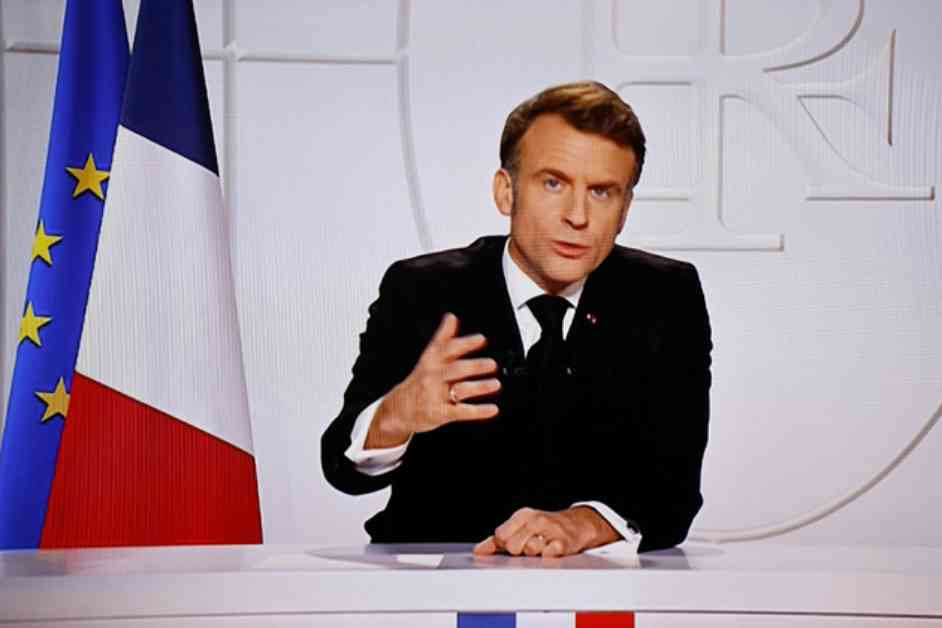French President Emmanuel Macron addressed the nation on Wednesday, raising the possibility of European military forces being deployed to Ukraine following a potential peace agreement to prevent further Russian aggression. Macron emphasized the importance of ensuring that any peace deal is fully respected, highlighting the need for European forces to act as guarantors of stability in the region. The French leader’s remarks came in response to Russia’s invasion of Ukraine, which he described as a threat not only to Ukraine but also to France and Europe as a whole.
Macron’s Proposal for European Forces Deployment
In his address, Macron stated that European military forces could be sent to Ukraine as a means of supporting the country in the aftermath of a peace agreement. While he clarified that these forces would not be engaged in frontline combat, their presence would serve as a deterrent against any potential violations of the peace deal. Macron announced that European military chiefs of staff would convene in Paris in the coming week to discuss the specifics of how to assist Ukraine post-peace agreement.
The French president expressed concern over Russia’s aggressive actions, noting that they posed a significant threat to the stability of Europe. He stressed the need for France and its European allies to respond to this threat proactively, rather than remaining passive observers in the face of danger. Macron’s call for European forces to be deployed to Ukraine reflects a broader commitment to upholding peace and security in the region, demonstrating a willingness to take concrete action to prevent further conflict.
Expert Insights on European Military Deployment
Military experts have weighed in on Macron’s proposal, highlighting the potential benefits and challenges of deploying European forces to Ukraine. General Pierre Leclerc, a retired French military officer, emphasized the importance of international cooperation in addressing security threats. “Deploying European forces to Ukraine would send a strong signal of solidarity and support for the country’s sovereignty,” Leclerc stated. “However, it would also require careful coordination among European nations to ensure effective deployment and operation of these forces.”
Other experts have raised concerns about the potential risks associated with sending European military forces to Ukraine. Dr. Anna Petrov, a political analyst specializing in Eastern European affairs, noted that such a deployment could escalate tensions with Russia and provoke further conflict. “While the intention behind deploying European forces is noble, we must be mindful of the potential consequences,” Petrov cautioned. “Any military presence in Ukraine could be perceived as a provocation by Russia, leading to a dangerous escalation of hostilities.”
Looking Ahead: Ensuring Peace and Security in Ukraine
As discussions around the possible deployment of European forces to Ukraine continue, it is essential to prioritize the goal of achieving lasting peace and security in the region. Macron’s proposal reflects a commitment to upholding international norms and preventing further aggression, but it also highlights the complex geopolitical dynamics at play in Eastern Europe. By working together to support Ukraine and deter future conflicts, European nations can demonstrate unity and solidarity in the face of shared challenges.
In conclusion, Macron’s announcement regarding the potential deployment of European military forces to Ukraine underscores the need for collective action in response to security threats. As discussions progress and plans are finalized, it will be crucial for European leaders to consider the implications of such a deployment carefully. By prioritizing diplomacy, cooperation, and respect for international law, Europe can play a vital role in promoting peace and stability in Ukraine and beyond.

















